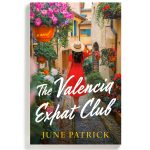Thursday kicks off the big annual conference for the Pacific Northwest Writers Association, and we’re all very excited. Through crazy random happenstance, our founding partners were invited to present long before we set out on this wonderful new venture. Maybe they knew something we didn’t.
To celebrate, we’ve each been critiquing random queries from attendees, I served as a judge for their literary contest, and we’ve included some rather cool swag in the PNWA tote bags (50 lucky attendees will find something extra special). And because our clients are rock stars, Pam, Laurie, and I will also be joined by presenters Eldritch Black, A.R. Kahler, Karice Bolton, Robert V. Taylor, and Tanya Chernov. Tanya is actually a PNWA success story, and we’ll be sharing what she learned on her path to publication Saturday morning at 8:00.
PNWA is a big show, and I imagine it can be a bit overwhelming if you aren’t a seasoned conference veteran, so I’ll go through a few pointers on how to properly prepare for such a large literary event.
First, and perhaps most importantly, evaluate yourself. Are you ok with being in large crowds? Are you fit for long days, a lot of walking, and frequent conversation with people you don’t know? Can you be away from home/work for a long weekend? Conferences are wonderful resources, but the last thing you want to do is set aside the time and drop a few hundred dollars on what ends up being a miserable experience for you.
Evaluate your writing. How far are along are you in your manuscript or proposal? What is the quality of what you have? What is your genre? What is your platform? Will you be seeking to improve your craft and/or platform, or will you be pitching a final product?
Protip: Always seek to improve your craft and/or platform, but also know what your primary goal is.
Then sleep on it, reevaluate, and make sure you were right. I can’t stress enough the importance of self-awareness. And if you need a second opinion, don’t be afraid to ask. Writing partners are great for that.
Spend some quality time with the conference website. Familiarize yourself with the workshops and sessions that are being offered. Have a hard talk with yourself on what you need vs. what would just be really cool to check out. If you’re still hazy on social media marketing or writing effective dialogue, those are more important than standing in line to get a signed copy of the keynote speaker’s new book.
See which agents, editors, authors, consultants, etc. will be there. Conferences usually list brief bios, but you should always then visit that person’s website to confirm whether or not they are for you. Conference bios often have strict word count limits, so we unfortunately have to be vague at times. Don’t assume that because an agent represents “quality fiction” they automatically represent your early reader book, your space opera, or your literary coming of age novel.
Protip: If the agent represents or expresses love for a specific book that is similar to yours, write that down and mention it when you meet them.
With the desired sessions and faculty in mind, write out a schedule, accounting for as much of the day as possible. Don’t forget about meals and social events like readings and mixers. Budget time to travel from location to location, especially if the conference hosts off-site events. You want to know where and when you should be at all times or else you may get distracted by all of the shiny. On rare occasion a conference will piece together sample schedules for fiction writers, poets, nonfiction writers, those working on their platform, those interested in online marketing, etc. They can be excellent starting points, but make sure to go through and customize for your specific needs.
Though organization and planning will help you greatly, you should always remain open to improvisation. Session adjustments are fairly common at conferences, and you never know when someone like NYT bestseller Robert Dugoni might say, “We’re going out for coffee, want to come?”
Protip: If you’re writing in that author’s genre, that’s usually more important, as well as great fun.
If there’s something extra that must be signed up for or purchased, like an editor consultation, author brunch, or agent pitch session, do so as soon as you’ve squared away your schedule (before the conference, if at all possible). You don’t want to be on the losing end of a sold-out session.
Protip: Conferences often offer early-bird rates, so don’t wait until the last minute to sign up for anything.
When you first check in, they’ll give you a program. Highlight sessions, names, times, locations, etc. Draw stars and large arrows, whatever you need. Then carry this around with you at all times. Also, don’t forget to double check all of the information and adjust your schedule accordingly.
Show up with an open mind, and leave your ego at the door. You may be there to pitch and network, but you’re also there to improve. If an agent asks for your manuscript, take the time to implement what you’ve learned over the weekend before you send it in.
Also, don’t ignore the other attendees. You never know. You might be sitting next to the next big bestseller, a future writing partner, or even a future agent. Before Laurie was an agent, she was an attendee of the San Francisco Writers’ Conference.
That’s about enough for now. I hope to see you soon at the SeaTac Hilton. Laura Cummings, Project Manager for our digital publishing program, will be posting a daily blog during the conference, so watch this space. Also follow us on Twitter and Instagram for up to the moment updates.


